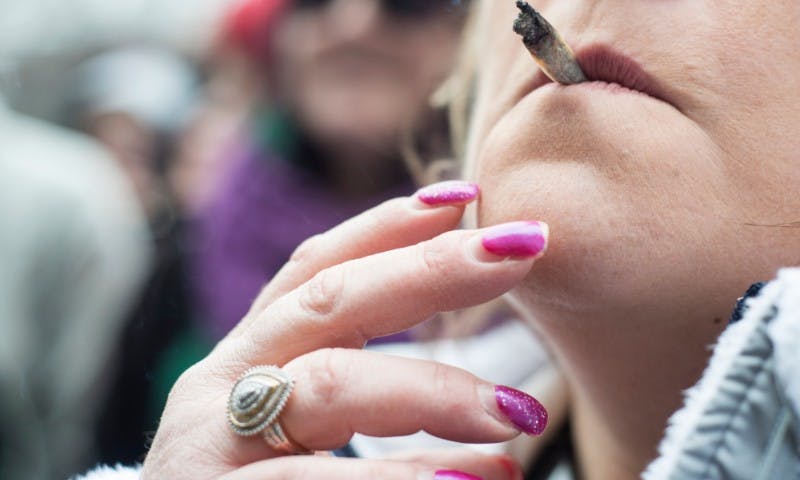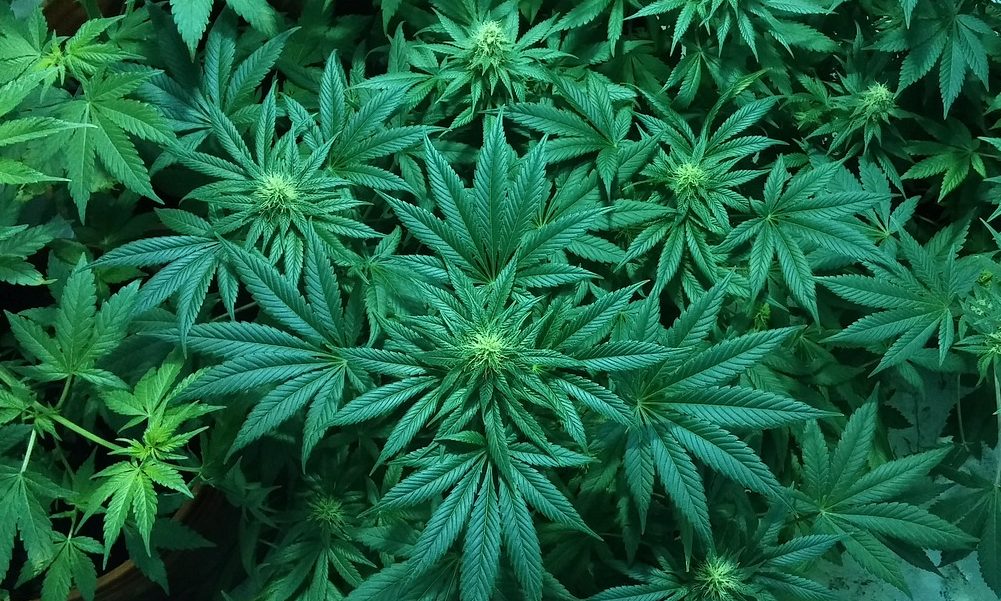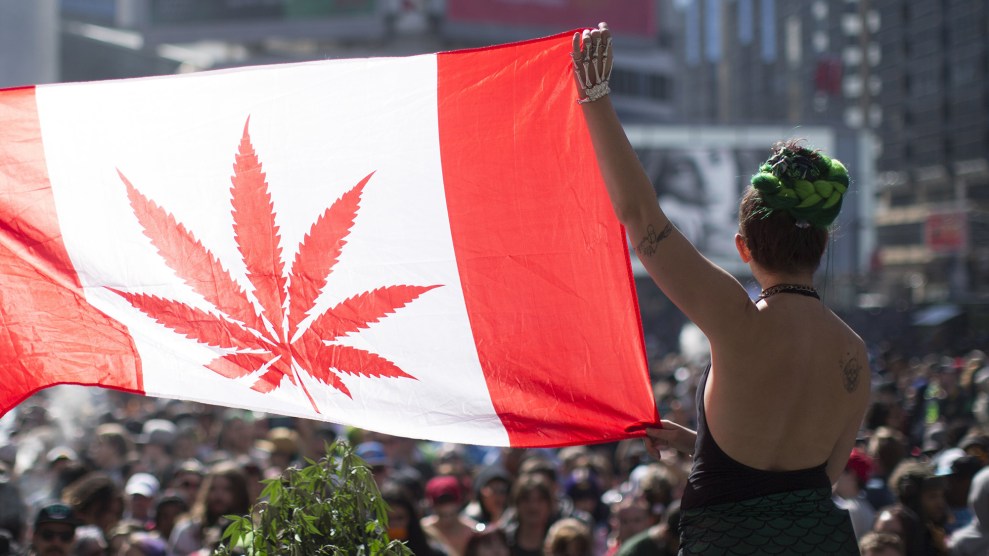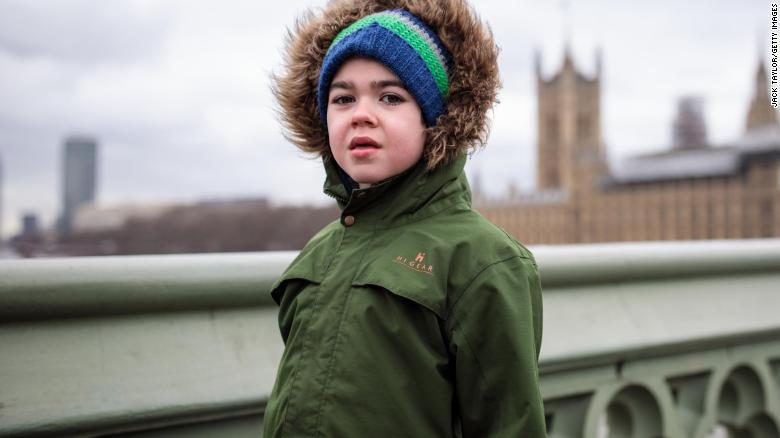
The proposal to legalize recreational marijuana throughout the state of Michigan is set to be on the ballot on Nov. 6, 2018.
Should this proposal pass, people 21 years of age and older will be able to purchase and use recreational marijuana in the state. A vote will determine if Michigan will follow in the footsteps of other states, such as Colorado and California, in legalizing marijuana for recreational use at the state level.
Josh Hovey, the communications director for the Coalition to Regulate Marijuana like Alcohol, said that if the proposal passes, Michigan would see "a very similar licensing structure that is happening right now with medical marijuana."
"You're going to see very little difference from what happens today, but there will be a whole lot fewer arrests," Hovey said.
Though recreational marijuana could be legalized in November, Hovey said it would take "a couple years to get everything up and running."
"Once our initiative passes, people will be able to possess and consume legally, but the licensing structure will take probably a year to really get off the ground," Hovey said.
Hovey said that although legalization can take place next November it will take a while for "the state to create all the rules and the processes for applying for licenses."
"I support the ballot measure," Mayor Meadows said. "As long as cities, you know, villages, townships, counties are authorized to set their own course on this, I think that it's the right way to go. I don't think the state has to dictate everything to us."
"It'd be nice to see that pass, and us put the jailing of people for smoking marijuana behind us forever," Meadows said.
Meadows also added that he would personally be in favor of dropping the legal age to consume both marijuana and alcohol to 18 years of age, but since the legal age to consume alcohol is 21 years, it should be "consistent across the board."
Hovey added that this legislation will put an end "to law enforcement resources that go to police to regulate a plant that has proven to be less dangerous and less addictive than either alcohol or tobacco."
While the legalization of marijuana would certainly be significant for the state, East Lansing wouldn't see as much change since recreational marijuana was decriminalized here by a city charter amendment in 2015. One problem that is present with the current set up in East Lansing is that although it is decriminalized here, marijuana is still illegal at the state level. As a result, police in the area have to enforce two conflicting sets of laws.
East Lansing Mayor Pro-Tem Erik Altmann said that if legalization passes in November, "a little bit more clarity" will be provided to local police in the area because they will not have to work under conflicting laws at the local and state level.
"I am a solid supporter of decriminalization at all levels and I think prohibition has been a spectacular failure and the rest of the country and the rest of the world is moving towards legalization in one form or another," Altmann said. "It's such a waste of money and such a waste of, you know, human resources when people get prosecuted and thrown in jail for marijuana crimes, it doesn't make any sense."
"We think that this isn't really a Democrat or Republican issue, this is an issue that the time has come, and most people in Michigan agree that prohibition doesn't work and it's been a massive failure, and that a system of strong regulation is a much better option," Hovey said.
Should this proposal pass, people 21 years of age and older will be able to purchase and use recreational marijuana in the state. A vote will determine if Michigan will follow in the footsteps of other states, such as Colorado and California, in legalizing marijuana for recreational use at the state level.
Josh Hovey, the communications director for the Coalition to Regulate Marijuana like Alcohol, said that if the proposal passes, Michigan would see "a very similar licensing structure that is happening right now with medical marijuana."
"You're going to see very little difference from what happens today, but there will be a whole lot fewer arrests," Hovey said.
Though recreational marijuana could be legalized in November, Hovey said it would take "a couple years to get everything up and running."
"Once our initiative passes, people will be able to possess and consume legally, but the licensing structure will take probably a year to really get off the ground," Hovey said.
Hovey said that although legalization can take place next November it will take a while for "the state to create all the rules and the processes for applying for licenses."
"I support the ballot measure," Mayor Meadows said. "As long as cities, you know, villages, townships, counties are authorized to set their own course on this, I think that it's the right way to go. I don't think the state has to dictate everything to us."
"It'd be nice to see that pass, and us put the jailing of people for smoking marijuana behind us forever," Meadows said.
Meadows also added that he would personally be in favor of dropping the legal age to consume both marijuana and alcohol to 18 years of age, but since the legal age to consume alcohol is 21 years, it should be "consistent across the board."
Hovey added that this legislation will put an end "to law enforcement resources that go to police to regulate a plant that has proven to be less dangerous and less addictive than either alcohol or tobacco."
While the legalization of marijuana would certainly be significant for the state, East Lansing wouldn't see as much change since recreational marijuana was decriminalized here by a city charter amendment in 2015. One problem that is present with the current set up in East Lansing is that although it is decriminalized here, marijuana is still illegal at the state level. As a result, police in the area have to enforce two conflicting sets of laws.
East Lansing Mayor Pro-Tem Erik Altmann said that if legalization passes in November, "a little bit more clarity" will be provided to local police in the area because they will not have to work under conflicting laws at the local and state level.
"I am a solid supporter of decriminalization at all levels and I think prohibition has been a spectacular failure and the rest of the country and the rest of the world is moving towards legalization in one form or another," Altmann said. "It's such a waste of money and such a waste of, you know, human resources when people get prosecuted and thrown in jail for marijuana crimes, it doesn't make any sense."
"We think that this isn't really a Democrat or Republican issue, this is an issue that the time has come, and most people in Michigan agree that prohibition doesn't work and it's been a massive failure, and that a system of strong regulation is a much better option," Hovey said.









